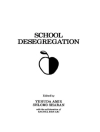Academics, NGOs, the United Nations, and individual nations are focused on the prevention and intervention of genocide. Traditionally, missions to prevent or intervene in genocide have been sporadic and under-resourced. The contributors to this volume consider some of the major stumbling blocks to the avoidance of genocide.
Bartrop and Totten argue that realpolitik is the major impediment to the elimination of genocide. Campbell examines the lack of political will to confront genocide, and Theriault describes how denial becomes an obstacle to intervention against genocide. Loyle and Davenport discuss how intervention is impeded by a lack of reliable data on genocide violence, and Macgregor presents an overview of the influence of the media. Totten examines how the UN Convention on Genocide actually impedes anti-genocide efforts; and how the institutional configuration of the UN is itself often a stumbling block.
Addressing an issue that is often overlooked, Travis examines the impact of global arms trade on genocide. Finally, Hiebert examines how international criminal prosecution of atrocities can impede preventive efforts, and Hirsch provides an analysis of the strengths, weaknesses, and effectiveness of major international and national prescriptions developed over the last decade. The result is a distinguished addition to Transaction’s prestigious Genocide Studies series.
About the author
Samuel Totten, professor emeritus, University of Arkansas, Fayetteville, continues to conduct field work in the Nuba Mountains, Sudan. Totten is the editor of Transaction Publishers' Genocide Studies series.












